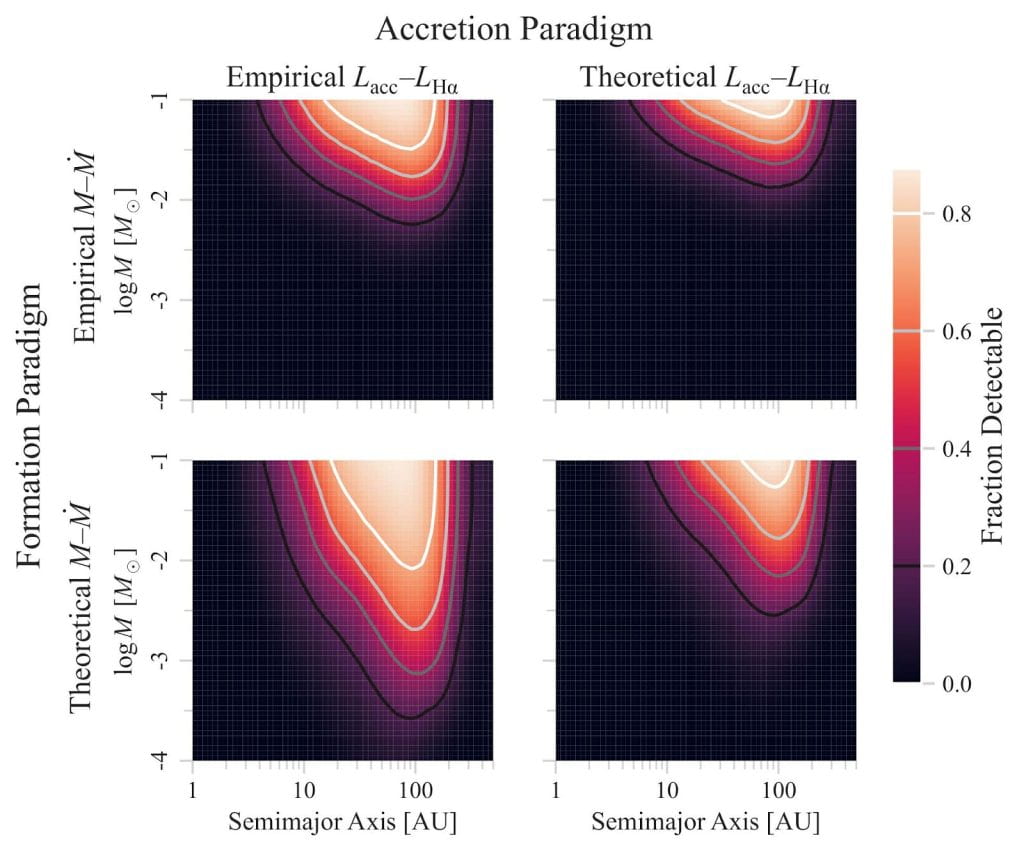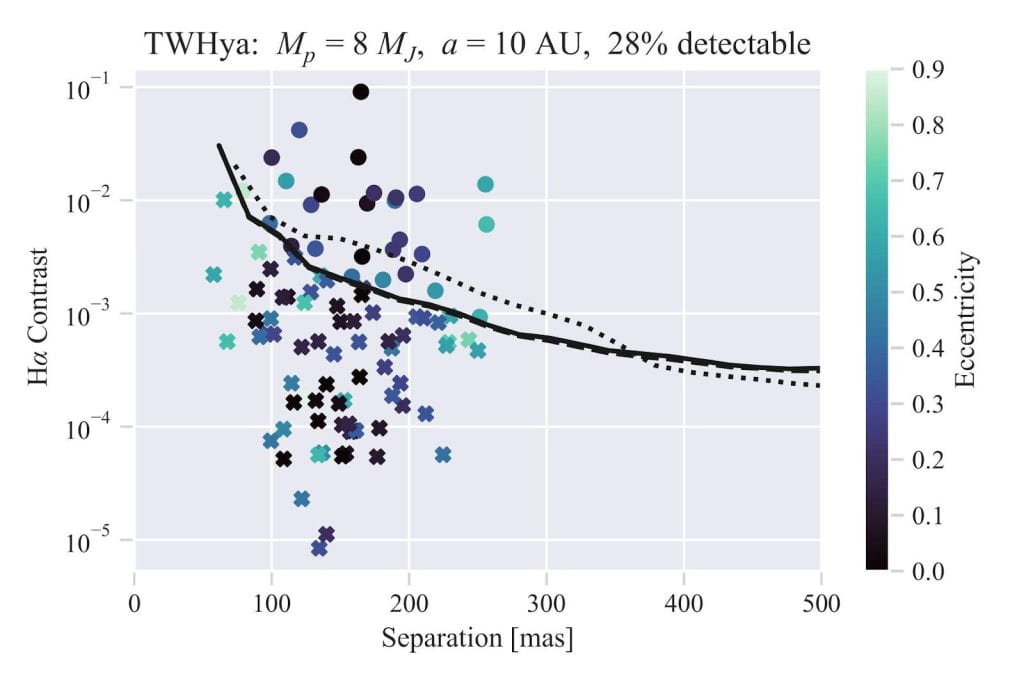Article by Amy Zheng
Cailin Plunkett ’23 is a physics and math major from Oakland, California. She is writing her thesis with Assistant Professor of Astronomy Kate Follette on the formation of protoplanets.
Since childhood, Plunkett wanted to study space and physics. Despite receiving advice to pursue computer science or engineering, Plunkett chose to follow her aspirations. During her freshman spring, Plunkett took Intro to Data Science with Astronomical Applications taught by Professor Follette, which solidified her interest in astrophysics. Her positive experience in that class inspired her to take Astrophysics I as a sophomore.
Can you explain your thesis topic and reason for choosing it?
My thesis topic with Kate Follette is on population properties of protoplanets. Kate works on exoplanet direct imaging, trying to take pictures of planets around stars other than our own. Particularly, she works on [protoplanets]: planets that are not fully formed and are still growing by pulling matter onto themselves. It’s really hard to take pictures of exoplanets, so we don’t have too many strong detections, particularly of those that aren’t fully formed. But we’re getting to the point where we have enough of these [and] can start asking questions about [their] distribution.
I’m trying to understand [how we can] go from these detections of still-forming planets to make claims about what kinds of planets are out there in the universe. What drew me to [this] research in particular was [working] with Kate after my freshman year [to find a methodology for parameter estimation of low-mass accreting astronomical objects]. And for me, [Kate] was the only clear option for a thesis here at Amherst. She was the only Astrophysics professor at the time, and I wanted to continue working with Kate.


What does your research look like?
I’m writing a simulation and doing some data analysis. It’s all done on my computer. It’s all coding, so I can do it from anywhere, whether that’s sitting outside (I’m not doing that in the winter), in Val, or in my room. And so, at the start, it was a lot of reading and understanding the things that are going into my simulation because I’m simulating planets with different properties and determining how they would appear in our observations.
Nowadays, I’m fixing the details of my simulation… [Professor Follette and I] just decided to make an approximation that will slightly decrease the fidelity of our results, but speed up [the simulation]. [I’m also] making a lot of plots. I run a bunch of things, make a plot, and then rinse and repeat. I use that to drive what I’m doing now.
Have you encountered any challenges or setbacks while writing your thesis?
Figuring out the exoplanet orbits was pretty confusing to me. Thankfully, someone else has figured that out, and I used their code in the end. But, understanding how to implement, combine, [and understand] pieces of code and simulations that other people have written was pretty tough. That was a slow process: making sure [I knew] what I was doing, and that I was using their work correctly.
The setbacks have all been less on the research side than on the kind of external personal side of things. I made a ton of progress in January and February, and all of those things that I had no idea how to do, I sat down for two hours, and I figured them out. When [I have] problems with the code, there was nothing so big that it stopped me for more than a day or two because I was able to work with Kate, read through the literature, and find a solution or approximation that worked. So, I’ve been lucky in that sense.
What impact do you hope your thesis will have in astrophysics?
This project has the potential to set up a framework for future population analyses of protoplanets. I’m working off a framework developed by someone else who did this for fully formed planets, and that has been integral in any sort of analysis from surveys.
[Normally], you go and survey 50 stars and get your results…now I’ve written a way to do this for planets that are still forming. I think that [my simulation] can be used down the line and further developed and improved upon to help us get more and more confident about how planets are forming,where they’re forming, and where they’re not.
So, the broad goal of [this] research is to understand, “Are we alone in the universe? Are there earth-like planets out there?” And the answer [to the second question] is, certainly, yes.
The unique thing about statistical inferences [is that] even from a handful of observations, you can make pretty powerful claims about things that exist and do not.
All research is very interconnected. I hope people build off of [my work], and I hope people take the ideas and put them to work in their own [research questions].
What advice would you give to students interested in writing a thesis?
Don’t stress too much when you aren’t making progress quickly. I got pretty worried at the end of last semester because it had been a really difficult semester for me. You can get a lot more done than you think that you can when you sit down and put just a couple of days of work into it. And you’re not going to have time to do that during the semester necessarily, but that’s okay. Come here a week early in January, put your head down, do some work, and you’ll be okay.
People have told me that your thesis is never as good as you want it to be [and that] you’ll never get as much done as you’d hoped. You’re always scrambling till the end — in the writing and the research — to get all your results, and that’s okay. It’s not meant to be a perfect document. Your thesis itself is not the publishable result….Your thesis is not a stream of consciousness, but it’s an entire portfolio of everything that you did over the year, everything that worked, and everything that didn’t. And it’s okay if it’s a little messy and imperfect because that is the research process. What [the Amherst faculty] want to see in a thesis is everything that you went through, put into this project and these questions, even if it doesn’t all end up perfect.
In your Goldwater Scholarship interview, you talked about becoming a professor in astrophysics. How have your future plans changed or evolved?
I think my plans have matured, but they have not changed… Especially with this last week of grad visits, I have a much sharper sense of the specific research questions that I want to undertake. I’m more and more excited about breaking into physics research and going to graduate school. I think for that field in particular, it’s a pretty pivotal time — a pretty exciting time — and so there’s a lot of questions that we will be able to answer in the next couple of years that we couldn’t answer two years ago.
I also love teaching, sharing my work, and bringing it to other people. [With how difficult] the academic track is, maybe my plans will change a couple years down the line, but right now I love the idea of not only conducting the research but also bringing physics and astro to other people.

You must be logged in to post a comment.